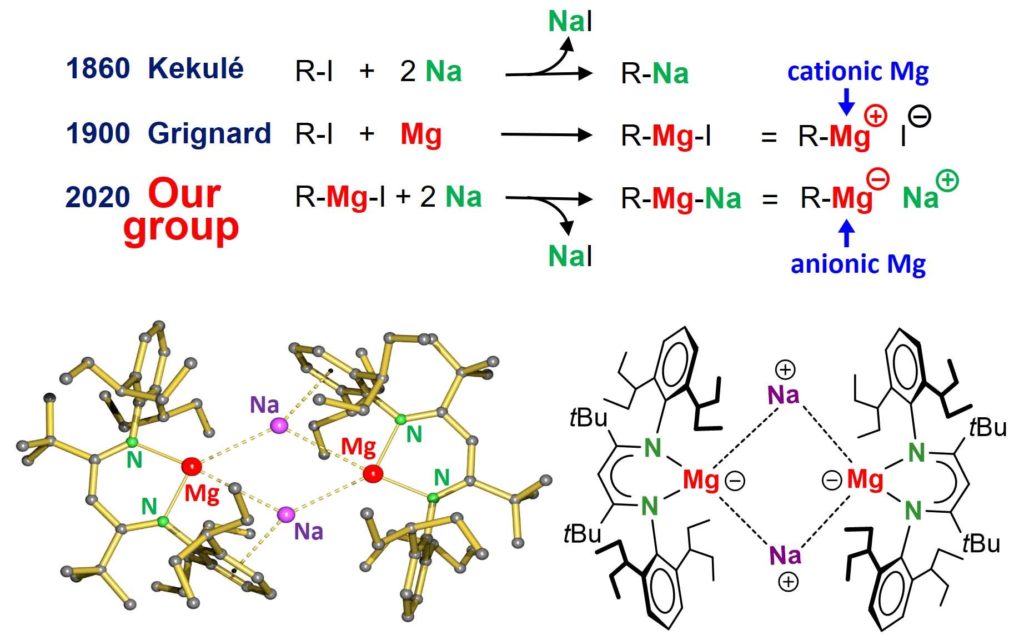Anionic (nucleophilic) Mg0 complexes
Ligand design enabled the synthesis of complexes with a direct Mg-Na bond. The Mg atom in these complexes is formally in oxidation state 0 and the high electron density on Mg makes it a nucleophilic anion. It is perfectly suited to make new Mg-M bonds: R-Mg-Na + M-Cl → R-Mg-M + NaCl. The chemistry of the magnesyl anion is currently under investigation.

Nature 2021, 592, 717
Strongly reducing magnesium(0) complexes
DOI:10.1038/s41586-021-03401-w